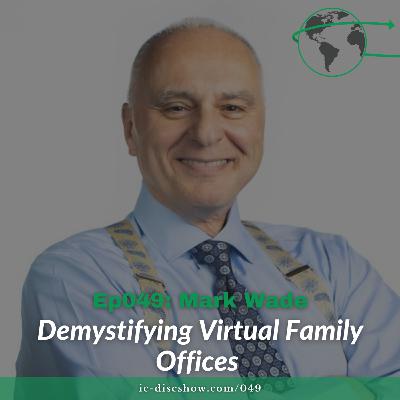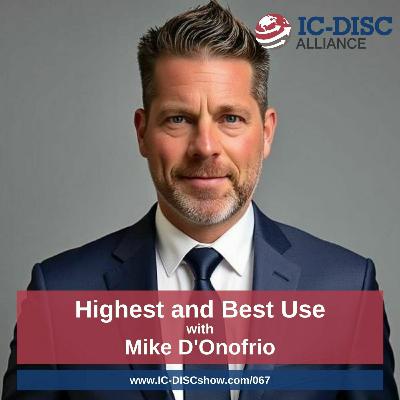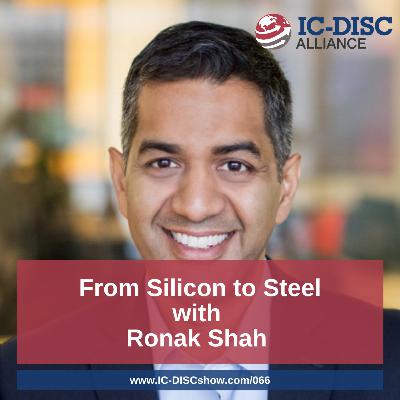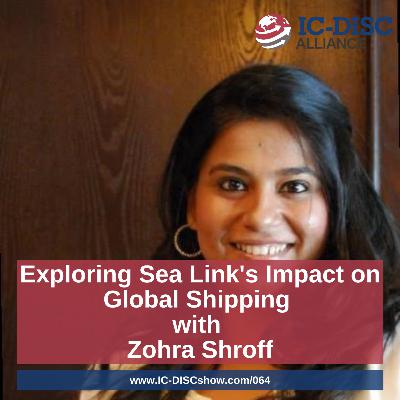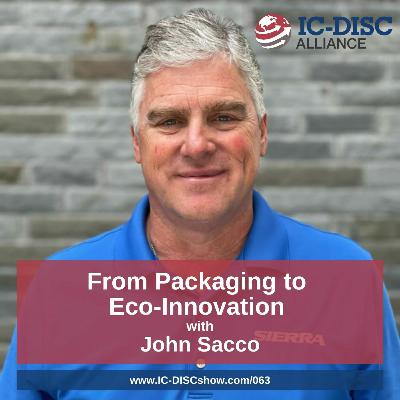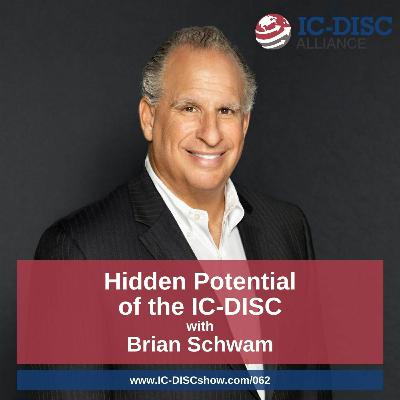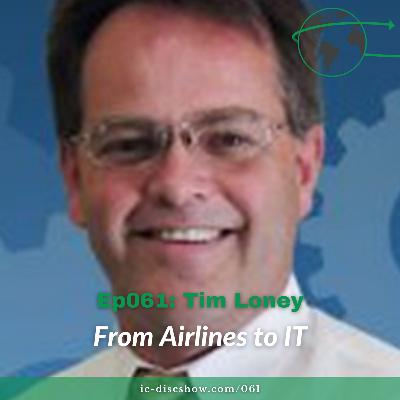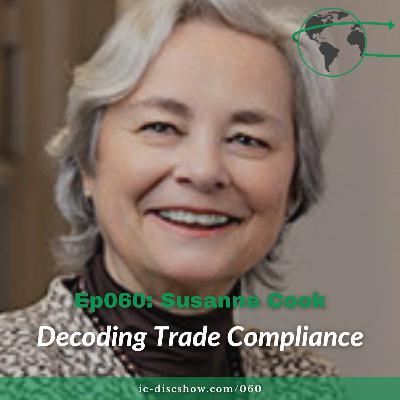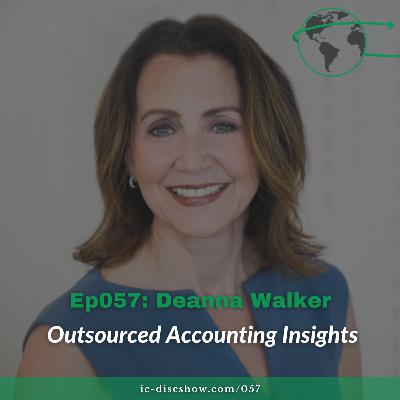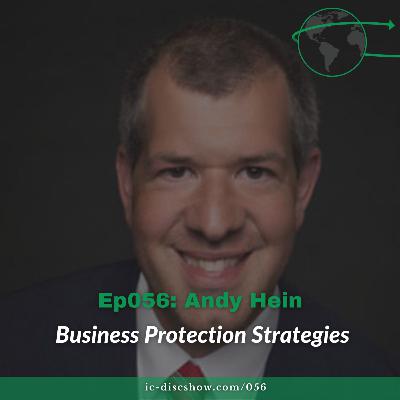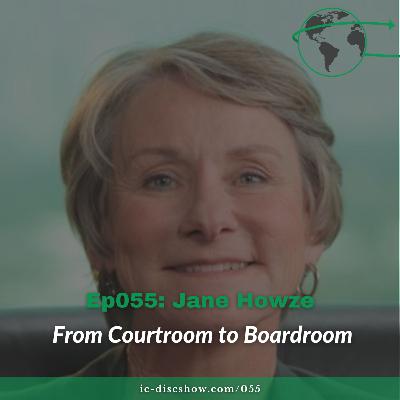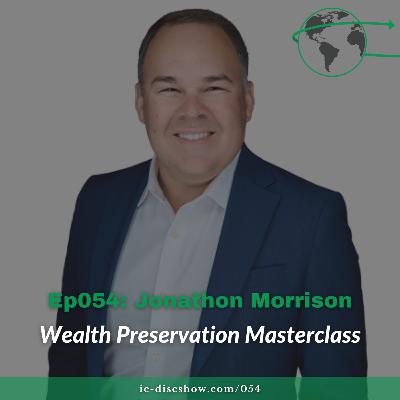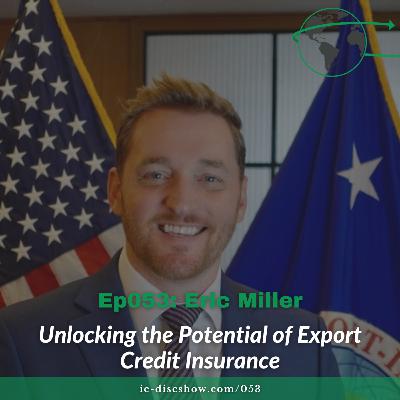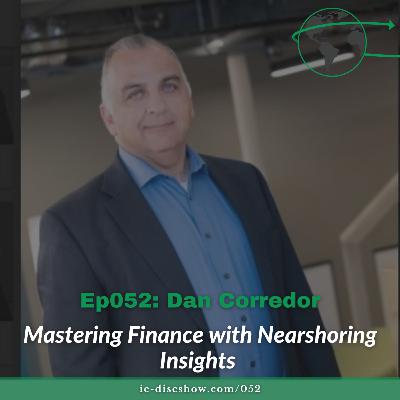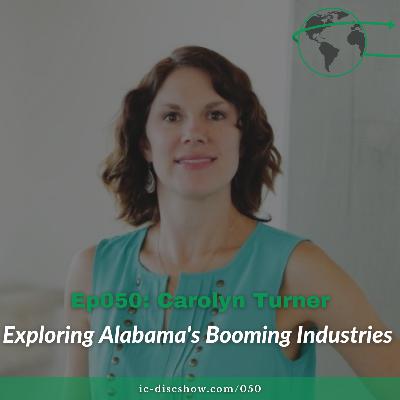Ep049: Demystifying Virtual Family Offices with Mark Wade
Description
In today's episode of the IC-DISC show, I chat with Mark Wade, founder and president of Echelon Virtual Family Office. Mark shares insights into virtual family office services, tailored for those with substantial wealth not needing a standalone family office. We also discuss premium-financed life insurance structures and how they serve individuals with several million dollars in assets.
Mark outlines the origins of virtual family offices, tracing back to the Rockefellers. We learn they now cater to those with $10 million or more in assets. Additionally, Mark describes optimizing value when selling a business through pre-sale coordination, marketing strategy, and deploying post-liquidity event assets.
We conclude by examining indexed universal life insurance advantages and investing in index funds, real estate, and small businesses. Overall, this informative episode underscores wealth management options and leveraging life insurance through Mark's insights
<iframe width="560" height="315" src="https://www.youtube.com/embed/y4HGNob-BJY?si=YRDJF9rNLlN3fI1M" title="YouTube video player" frameborder="0" allow="accelerometer; autoplay; clipboard-write; encrypted-media; gyroscope; picture-in-picture; web-share" allowfullscreen></iframe>
SHOW HIGHLIGHTS
- In this episode I chat with Mark Wade, the founder and president of Echelon Virtual Family Office, How He provides services to wealthy individuals who need family office services but do not justify having a standalone family office.
- Mark elaborates on the concept of a virtual family office, highlighting that it originated with the Rockefellers. He explains that these services are typically available to those with a net worth of $10 million or more.
- We discuss the process of leveraging life insurance through premium financing, with Mark emphasizing that the coordination of various financial professionals and providers is key to unlocking a business's value.
- Mark and I delve into the process of pre-sale value creation, marketing to potential buyers, and the deployment of assets after a liquidity event.
- We explore the struggle of successful business owners in transitioning from their roles after a liquidity event, and the satisfaction derived from making a difference in people's lives.
- We discuss the concept of premium financed life insurance and how Etch-A-Lan uses it strategically.
- Mark describes the process of bank financing with collateral and contribution, explaining how clients can sign a personal loan and provide collateral.
- We discuss how despite a higher interest rate environment, the strategy of bank financing remains potent due to policy flexibility.
- Mark and I examine the benefits of indexed universal life insurance and the advantages of investing in index funds, rental real estate, and small business ownership.
- Finally, we celebrate the power of self-confidence and the wisdom gleaned from financial experiences.
LINKS
About Echelon Wealth Strategies
GUEST
TRANSCRIPT
(AI transcript provided as supporting material and may contain errors)
David: Hi, this is David Spray, and welcome to another episode of the ICDisc Show. My guest today is Mark Wade, the president and founder of Etch-A-Lan Virtual Family Office. They work with families who have a need for family office services but whose net worth does not justify having a standalone family office, so they serve these families and add a lot of value. We had a great interview talking about some of the things they do to add value, and then we also talked about an interesting structure that they are familiar with around leveraging life insurance through premium financing in what he describes as a quote modern structure. I have some familiarity with premium finance life insurance but Mark's approach is really interesting. We also talked about things he wish he had known when he was younger and advice he would have given himself. So this is a great episode for really anybody who has accumulated several million dollars of wealth or more who's interested in learning more about the options available to them to manage their wealth. I hope you enjoy this episode as much as I did.
Good morning, mark. Welcome to the podcast. Good morning. How are you today? I am great. So where are you calling in from today? What part of the world are you in?
Mark: Today we're calling in from sunny Venice, florida, on the Gulf Coast.
David: Venice. Okay, what's the nearest large city that Venice is near or larger?
Mark:20 miles south of Sarasota Okay.
David: Excellent. I love that. That's the largest city. I love that part of Florida. So I'm kind of a sequential learner. I like to kind of start in the beginning. Are you a native Floridian or are you from somewhere else?
Mark: I was born and raised in Newark, new Jersey, and lived my childhood in New Jersey and, as I, when I graduated college. Since then I've been all over the country, coast to coast. I've spent part of my corporate career, my earlier corporate career, west of the Mississippi, headquartered out of Florida where, I'm sorry, out of California, where I ran west of Mississippi for one of the major brokerage firms, and then, when I went independent in 1999, relocated back to the East Coast again. So I'm currently a Florida resident.
David: Awesome. Yeah, so I'm a Texan and it's like Texas and Florida seem to be like kindred spirits. You know the similar philosophies on a lot of things, and with a fair amount of Gulf Coast Beach front. That's right. So talk to me about echelon virtual family office. What's the history? What made you start it? Who are you set up to serve? Tell me the story.
Mark: Yeah, great. So echelon virtual family office really started in 19 as a state and succession planning firm. Okay, business owners have been our focus for many years, though we do serve some at this point quite a few C level corporate executives, upper level corporate executives and retirees from both the business world and the corporate world. So echelon virtual family office is an evolution of that original practice. And you know, as a virtual family office, most people have heard of the Rockefellers and they've heard of the Vanderbilt's and you know the Rockefellers got it right and unfortunately, the Vanderbilt's didn't, and they meaning the Rockefellers really came up with the concept of a virtual family office. You want me to just give a brief run down to what a family office does. Yeah, please do that for those that might not have heard of it or not that familiar with it.
So the Rockefellers figured out years ago that instead of sourcing a variety of outside professionals, instead of going to outside attorneys and accountants and real estate people and mortgage people and bankers and so on and so forth, you know, john Rockefeller figured out that he could just go ahead and hire all those people inside, because he created enough wealth in order to do that. Nowadays, by the way to create your own family office. It makes sense when you have about 250 million dollars of net worth, okay, so below that, a family might employ the services of a multi-family office, which is where a variety of people, a multitude of people, who typically have about 50 million and larger, would use the same services of a family office. That is a for-profit family office. So some of the people from the private family office one day said, well, we could do this and earn a living at it as a standalone company. So they created a multi-family office and for the last 10 years, myself and a mastermind group that I belong to there's about 220 of us now we started working on this concept of bringing family office services. So it's really all of those core services that everybody knows accounting, legal real estate, banking, mortgage, investment, so on and so forth. Everyone's familiar with those. But some of the more esoteric ones are some of the more more specialized ones, like personal security, trademark law, international banking.
So some of the more sophisticated family services not end to include some of the tax driven ones, but you know specific types of tax strategy.
You know

